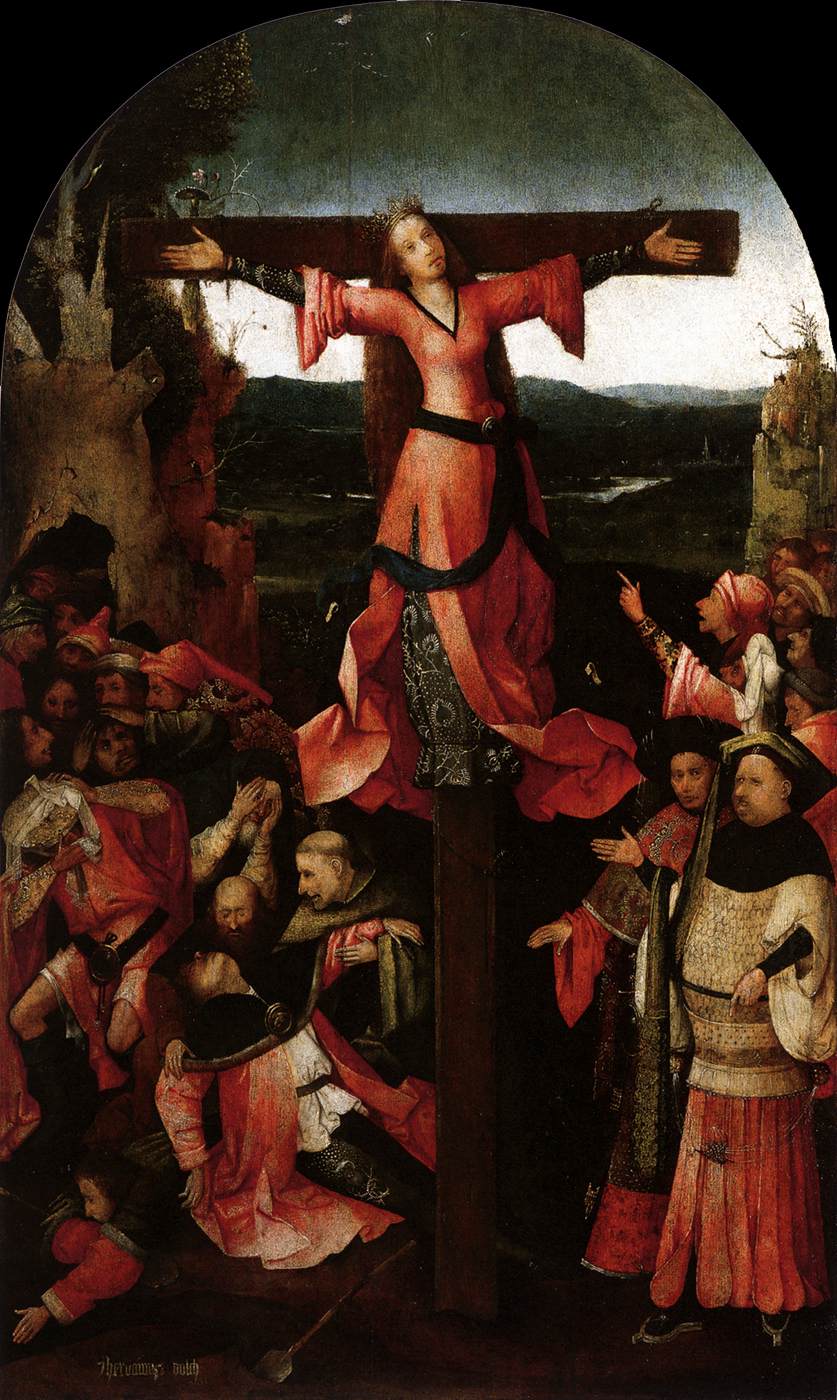Description
The painting Triptych of the Martyrdom of St Liberata, the work of the artist Hieronymus Bosch, is a piece of great importance in the history of art. His artistic style, characterized by meticulous detail and rich colors, is one of the highlights of this work.
The composition of the painting is another of its most interesting aspects. The painting is divided into three panels, the central one being the largest and most important. It represents the scene of the martyrdom of Santa Liberata, surrounded by a large number of characters who observe the scene with horror.
Color is another of the highlights of this painting. Dark and gloomy tones predominate in the work, creating an atmosphere of mystery and drama. However, there are also more vivid touches of color, such as the intense red of the blood that flows from the wounds of Santa Liberata.
The history of the painting is also interesting. It was created in the 16th century, during the Renaissance, and it is believed that it was commissioned by a church in Brussels. However, its authorship was not confirmed until the 19th century, when a Bosch signature was discovered on one of the panels.
In addition, there are little-known aspects about this painting, such as the possible influence of El Bosco's work on the work of other later artists. There has also been speculation about the symbolic meaning of some of the elements present in the work, such as the figure of a demon that seems to be observing the scene from a corner of the painting.
In summary, the painting Triptych of the Martyrdom of St Liberata is a work of great artistic and historical value, which stands out for its meticulous and detailed style, its dramatic composition and its richness of colour. In addition, its history and the little-known aspects that surround it make it an even more interesting and enigmatic piece.

